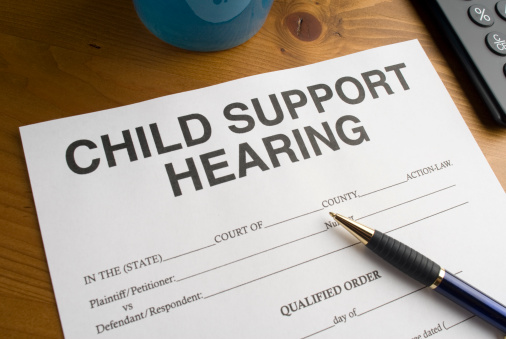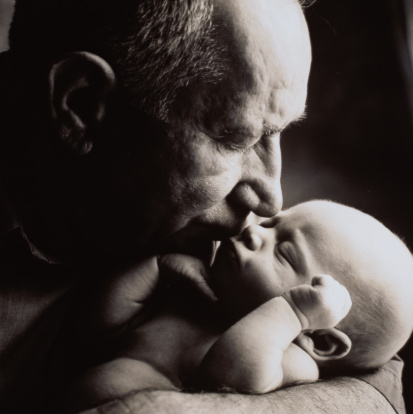 Divorce is a family event that impacts children of all ages.There has been an uptick of divorces for middle-aged and older couples whose children may have already launched their adult lives.Just because children are not living under the same roof with a parent or parents does not mean their lives won’t be deeply affected by family changes that will occur following a divorce.
Divorce is a family event that impacts children of all ages.There has been an uptick of divorces for middle-aged and older couples whose children may have already launched their adult lives.Just because children are not living under the same roof with a parent or parents does not mean their lives won’t be deeply affected by family changes that will occur following a divorce.
At Daisy Camp, I have heard many sad stories of communication breakdowns between parents and their adult children during and after a divorce.Adult children experience unique emotional distress and practical challenges. Regardless of age, children can feel caught in the middle if parents remain in conflict.In fact, adult children can experience a heightened sense of betrayal and confusion about what has happened to their family of origin
Here are three considerations for divorcing parents of adult children:
1. It is helpful for adult children if parents are able to inform them about the divorce with a thoughtfully prepared joint We Statement.This allows parents to be more in charge of the message and the tone, and may gently discourage adult children from feeling as though they are expected to take sides or determine who is to blame.A Neutral Child Specialist can assist parents in the creation of a We Statement.
2. Adult children will continue to have personal and family-centered milestones to celebrate, including graduations, engagements, marriages and births of grandchildren. Advance planning and clear communication with adult children about parents’ readiness and willingness to jointly participate can reduce anxiety for adult children.If parents are not ready and willing to jointly participate, being able to constructively problem solve with children so the events can proceed without undue drama is also helpful to them.A worst-case scenario for adult children is feeling helplessly caught in a power struggle between parents for every family event.
3. Adult children may ask difficult questions, and parents need to be prepared to answer honestly but without making their children feel the necessity of taking sides.Keeping children at the center and out of the middle can be especially challenging if there has been an infidelity or other breach of trust in the marriage.Under these circumstances, it can be especially valuable for divorcing parents to get the support and guidance of a neutral mental health professional.
Collaborative Team Practice provides access to skilled mental health expertise from a Neutral Child Specialist or Neutral Coach to guide parents to support their adult children through a difficult transition that will impact the rest of their lives.It is a privilege to help parents create a legacy of healing and respect for their adult children and grandchildren.
 How to provide financially for children after divorce has been a much-discussed topic for decades. Courts have traditionally used child support guidelines established by state government to calculate a monthly payment from one parent to the other. The Minnesota guideline child support calculator incorporates a number of variables, including both parents’ incomes, number of children, parenting time percentages, and children’s medical and day care costs, in arriving at a monthly payment amount. While statutory formulas produce a number, they don’t always resolve the issue. Many unanswered questions may remain, such as:
“Is summer camp included in my child support payment?”
“Do I have to contribute toward dance lessons on top of my child support?”
“Our child needs private tutoring … does my ex have to pay half?”
“Who pays for hockey equipment and ice time?”
Ambiguity often results in conflict. Some couples return to court again and again to try to resolve questions like these. The emotional and financial costs of repeated court appearances add up in a hurry.
The Collaborative divorce process takes a different approach toward paying the children’s direct and indirect expenses. Parents compile a list of their kids’ direct expenses (clothing, haircuts, school lunches, daycare, summer camps, extracurricular activities, etc.) and then discuss options for paying these expenses. Some couples decide to fund a joint children’s account to be used solely for enumerated expenses. Others divide the expenses with mom paying some and dad paying some. Others decide to use the guideline calculator, spelling out how any additional expenses will be covered. Indirect expenses (housing and food) are included in each parent’s budget and are usually part of a more general discussion about support. Collaborative support agreements typically include periodic reviews allowing for adjustments as parents’ incomes and the children’s needs change. Plans like these can preemptively avoid repeated unpleasant discussions in the years following divorce.
If you are interested in learning more about the Collaborative process, please visit The Collaborative Law Institute of Minnesota’s website.
How to provide financially for children after divorce has been a much-discussed topic for decades. Courts have traditionally used child support guidelines established by state government to calculate a monthly payment from one parent to the other. The Minnesota guideline child support calculator incorporates a number of variables, including both parents’ incomes, number of children, parenting time percentages, and children’s medical and day care costs, in arriving at a monthly payment amount. While statutory formulas produce a number, they don’t always resolve the issue. Many unanswered questions may remain, such as:
“Is summer camp included in my child support payment?”
“Do I have to contribute toward dance lessons on top of my child support?”
“Our child needs private tutoring … does my ex have to pay half?”
“Who pays for hockey equipment and ice time?”
Ambiguity often results in conflict. Some couples return to court again and again to try to resolve questions like these. The emotional and financial costs of repeated court appearances add up in a hurry.
The Collaborative divorce process takes a different approach toward paying the children’s direct and indirect expenses. Parents compile a list of their kids’ direct expenses (clothing, haircuts, school lunches, daycare, summer camps, extracurricular activities, etc.) and then discuss options for paying these expenses. Some couples decide to fund a joint children’s account to be used solely for enumerated expenses. Others divide the expenses with mom paying some and dad paying some. Others decide to use the guideline calculator, spelling out how any additional expenses will be covered. Indirect expenses (housing and food) are included in each parent’s budget and are usually part of a more general discussion about support. Collaborative support agreements typically include periodic reviews allowing for adjustments as parents’ incomes and the children’s needs change. Plans like these can preemptively avoid repeated unpleasant discussions in the years following divorce.
If you are interested in learning more about the Collaborative process, please visit The Collaborative Law Institute of Minnesota’s website.  How to provide financially for children after divorce has been a much-discussed topic for decades. Courts have traditionally used child support guidelines established by state government to calculate a monthly payment from one parent to the other. The Minnesota guideline child support calculator incorporates a number of variables, including both parents’ incomes, number of children, parenting time percentages, and children’s medical and day care costs, in arriving at a monthly payment amount. While statutory formulas produce a number, they don’t always resolve the issue. Many unanswered questions may remain, such as:
“Is summer camp included in my child support payment?”
“Do I have to contribute toward dance lessons on top of my child support?”
“Our child needs private tutoring … does my ex have to pay half?”
“Who pays for hockey equipment and ice time?”
Ambiguity often results in conflict. Some couples return to court again and again to try to resolve questions like these. The emotional and financial costs of repeated court appearances add up in a hurry.
The Collaborative divorce process takes a different approach toward paying the children’s direct and indirect expenses. Parents compile a list of their kids’ direct expenses (clothing, haircuts, school lunches, daycare, summer camps, extracurricular activities, etc.) and then discuss options for paying these expenses. Some couples decide to fund a joint children’s account to be used solely for enumerated expenses. Others divide the expenses with mom paying some and dad paying some. Others decide to use the guideline calculator, spelling out how any additional expenses will be covered. Indirect expenses (housing and food) are included in each parent’s budget and are usually part of a more general discussion about support. Collaborative support agreements typically include periodic reviews allowing for adjustments as parents’ incomes and the children’s needs change. Plans like these can preemptively avoid repeated unpleasant discussions in the years following divorce.
If you are interested in learning more about the Collaborative process, please visit The Collaborative Law Institute of Minnesota’s website.
How to provide financially for children after divorce has been a much-discussed topic for decades. Courts have traditionally used child support guidelines established by state government to calculate a monthly payment from one parent to the other. The Minnesota guideline child support calculator incorporates a number of variables, including both parents’ incomes, number of children, parenting time percentages, and children’s medical and day care costs, in arriving at a monthly payment amount. While statutory formulas produce a number, they don’t always resolve the issue. Many unanswered questions may remain, such as:
“Is summer camp included in my child support payment?”
“Do I have to contribute toward dance lessons on top of my child support?”
“Our child needs private tutoring … does my ex have to pay half?”
“Who pays for hockey equipment and ice time?”
Ambiguity often results in conflict. Some couples return to court again and again to try to resolve questions like these. The emotional and financial costs of repeated court appearances add up in a hurry.
The Collaborative divorce process takes a different approach toward paying the children’s direct and indirect expenses. Parents compile a list of their kids’ direct expenses (clothing, haircuts, school lunches, daycare, summer camps, extracurricular activities, etc.) and then discuss options for paying these expenses. Some couples decide to fund a joint children’s account to be used solely for enumerated expenses. Others divide the expenses with mom paying some and dad paying some. Others decide to use the guideline calculator, spelling out how any additional expenses will be covered. Indirect expenses (housing and food) are included in each parent’s budget and are usually part of a more general discussion about support. Collaborative support agreements typically include periodic reviews allowing for adjustments as parents’ incomes and the children’s needs change. Plans like these can preemptively avoid repeated unpleasant discussions in the years following divorce.
If you are interested in learning more about the Collaborative process, please visit The Collaborative Law Institute of Minnesota’s website. 

 Peace is possible though we are surrounded by high conflict. In the recent words of former Secretary of State Madeleine Albright, “The world is a mess.” Messiness occurs when people are unable or unwilling to resolve differences without wars of words or weapons. This occurs not only globally but also on a personal scale. And for all the extraordinary human costs of violent conflict, the most deeply distressing is its impact on children.
The end of a marriage is not unlike the breaking up of a country based on sectarian differences. Is it possible to disconnect without civil war? Yes, but one must be mindful of the path one is choosing, and deliberately opt to not do battle. Though sometimes complicated, peaceful resolutions are possible if the focus remains the safety and wellbeing of children.
I do not believe conflict is inevitable, because for every cause of conflict there is an inverse possibility. In our day-to-day lives, we can choose a path of peace. We can elect to follow
Peace is possible though we are surrounded by high conflict. In the recent words of former Secretary of State Madeleine Albright, “The world is a mess.” Messiness occurs when people are unable or unwilling to resolve differences without wars of words or weapons. This occurs not only globally but also on a personal scale. And for all the extraordinary human costs of violent conflict, the most deeply distressing is its impact on children.
The end of a marriage is not unlike the breaking up of a country based on sectarian differences. Is it possible to disconnect without civil war? Yes, but one must be mindful of the path one is choosing, and deliberately opt to not do battle. Though sometimes complicated, peaceful resolutions are possible if the focus remains the safety and wellbeing of children.
I do not believe conflict is inevitable, because for every cause of conflict there is an inverse possibility. In our day-to-day lives, we can choose a path of peace. We can elect to follow 




 Recently I received a referral from Kristin, a client I represented in 2011 in her collaborative divorce. In thanking her for the referral, I took the opportunity to ask her how she was doing. With her permission, her response is reproduced below. At the time of her divorce, Kristin and her husband had two (2) children ages 10 and 12.
Hi Tonda,
Nice to hear from you. I will fill you in with some detail for examples of what can lay on the other side of divorce to help you give hope to your clients going through this painful process. Everyone is doing well here; the kids are doing really well splitting their time between our 2 households (4 miles apart).
Tom and I have a much better relationship now than when we were getting divorced. We talk several times per week and text, usually daily, mostly regarding kids’ stuff like coordinating activities/homework and just general parenting issues. We also try to meet for coffee sometimes to discuss things more in depth like holidays and vacation planning and kids’ milestones. We see each other at their basketball games, tennis matches, orchestra concerts, etc, even holidays sometimes, and usually sit together with our new spouses. Tom and I both got re-married a couple of months ago and Tom and his wife are expecting a baby in March. I married a pharmacist that I met after the divorce and we got married in Yosemite in August of this year. The four of us get along well and the kids get along well with both our spouses so I have nothing but great things to say about the collaborative process. It really helped us to avoid a lot of un-pleasantries and keep our family together without staying married, which is really great.
I hope all is well with you and your practice. I will continue to recommend people look into collaborative divorce as an option. It has been very helpful to us to use the divorce agreement as a structure, but we stay very flexible with rearranging schedules, holidays and vacations etc. We have actually never even had an argument since the divorce. It has helped us build a sense of cooperation and the
Recently I received a referral from Kristin, a client I represented in 2011 in her collaborative divorce. In thanking her for the referral, I took the opportunity to ask her how she was doing. With her permission, her response is reproduced below. At the time of her divorce, Kristin and her husband had two (2) children ages 10 and 12.
Hi Tonda,
Nice to hear from you. I will fill you in with some detail for examples of what can lay on the other side of divorce to help you give hope to your clients going through this painful process. Everyone is doing well here; the kids are doing really well splitting their time between our 2 households (4 miles apart).
Tom and I have a much better relationship now than when we were getting divorced. We talk several times per week and text, usually daily, mostly regarding kids’ stuff like coordinating activities/homework and just general parenting issues. We also try to meet for coffee sometimes to discuss things more in depth like holidays and vacation planning and kids’ milestones. We see each other at their basketball games, tennis matches, orchestra concerts, etc, even holidays sometimes, and usually sit together with our new spouses. Tom and I both got re-married a couple of months ago and Tom and his wife are expecting a baby in March. I married a pharmacist that I met after the divorce and we got married in Yosemite in August of this year. The four of us get along well and the kids get along well with both our spouses so I have nothing but great things to say about the collaborative process. It really helped us to avoid a lot of un-pleasantries and keep our family together without staying married, which is really great.
I hope all is well with you and your practice. I will continue to recommend people look into collaborative divorce as an option. It has been very helpful to us to use the divorce agreement as a structure, but we stay very flexible with rearranging schedules, holidays and vacations etc. We have actually never even had an argument since the divorce. It has helped us build a sense of cooperation and the 
